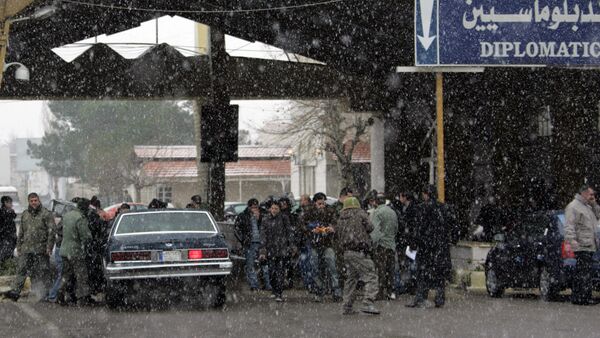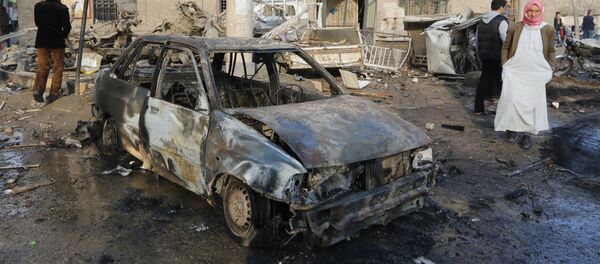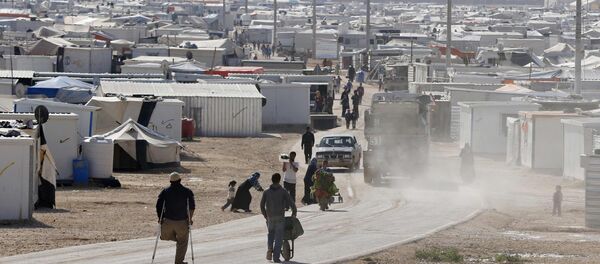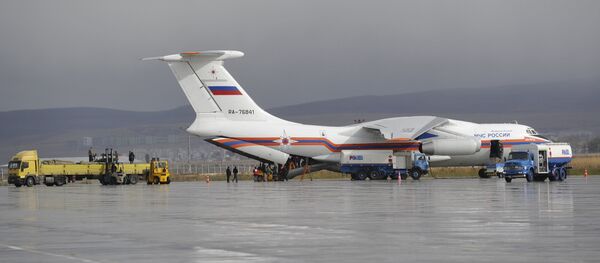MOSCOW, January 8 (Sputnik) — A rare and powerful series of winter storms have swept across North Africa and the Middle East, killing at least four refugees, including two children; they are threatening to precipitate a humanitarian catastrophe for Syrian and Palestinian refugees, Al Arabiya has reported.
The snowstorms, dubbed "Huda" and "Zina", have disrupted life across the region, particularly for the estimated 1.1 million Syrian refugees currently living in Lebanon, including an estimated 400,000 who live in makeshift tents and shelters in the northeast of the country. Refugees have been reported to be running out of heating materials, and have been using brooms and sticks to try to clear the 50 centimeters of snow that are said to have fallen in the Beqaa Valley over the past several days.
"We spend all our time clearing the roof of the tent so it doesn't fall on us. We have to do it every five minutes," Arsal refugee Abu Mohammad told Lebanon's The Daily Star, saying residents have been forced to stay awake for days to keep their tents free from snow. At least three tents are reported to have collapsed, leaving 19 people without shelter, The Guardian reported Wednesday.
"I've been a refugee here for two years but this is the worst winter I've seen," said Mohammad al-Hussein, as quoted by Agence France-Presse. "We feel humiliated," he added.
A Syrian shepherd, Ammar Kamel, 30, and 7-year-old boy Majed Badawi died in the storm on Wednesday as they attempted to cross the Lebanese border in the southern region of Shebaa in temperatures that reached minus 7 degrees. Another man traveling with them was also reported to have died, The Daily Star reported on Thursday.
Storm Also Affects Gaza, Israel, West Bank
Gaza's authorities have declared a state of emergency as a result of the storm, with an 8-month-old infant at the Tulkarem refugee camp reported to have been killed in a fire caused by a faulty heating stove. Torrential rains and temperatures near freezing added to the misery in the Gaza strip, still recovering from the 50-day war with Israel last summer. The thousands of people living in temporary shelters and damaged homes with no electricity or clean drinking water have been particularly hard hit.
A part of the territory's coastal areas have been evacuated due to storm surges, and a UN relief effort has been working to distribute food and generators to ease chronic electricity shortages faced across the territory.
The storm has also resulted in the closure of roads, schools, universities, and seaports and airports across the region, from Egypt to Israel, Syria and Lebanon, with waves of up to five meters and high winds closing five Egyptian ports on the Red Sea and Syria's Tartous and Latakia ports. In Israel and the West Bank, people rushed to stock up on food supplies and gas and paraffin heaters, while the Israeli army was called in to help deal with the storm, which left over 17,000 homes without power on Wednesday.






